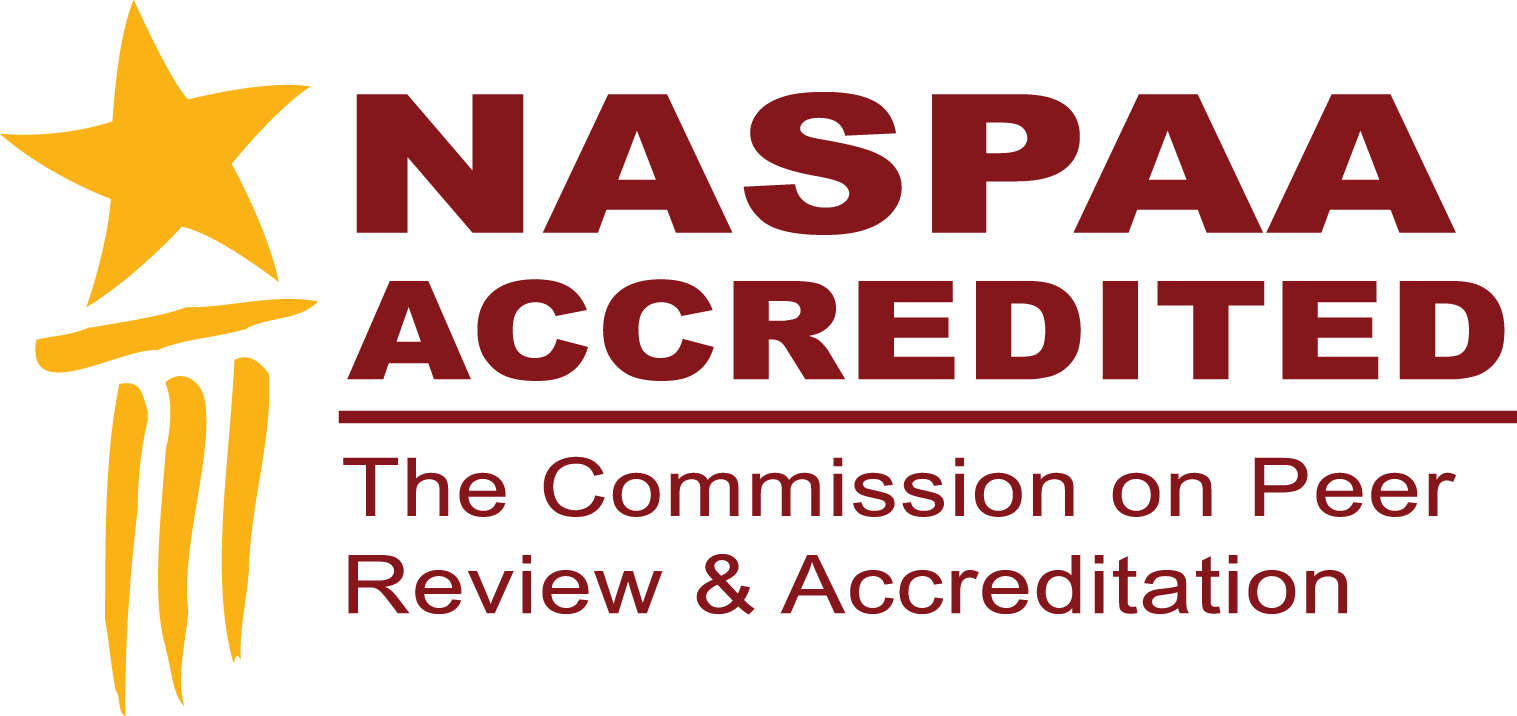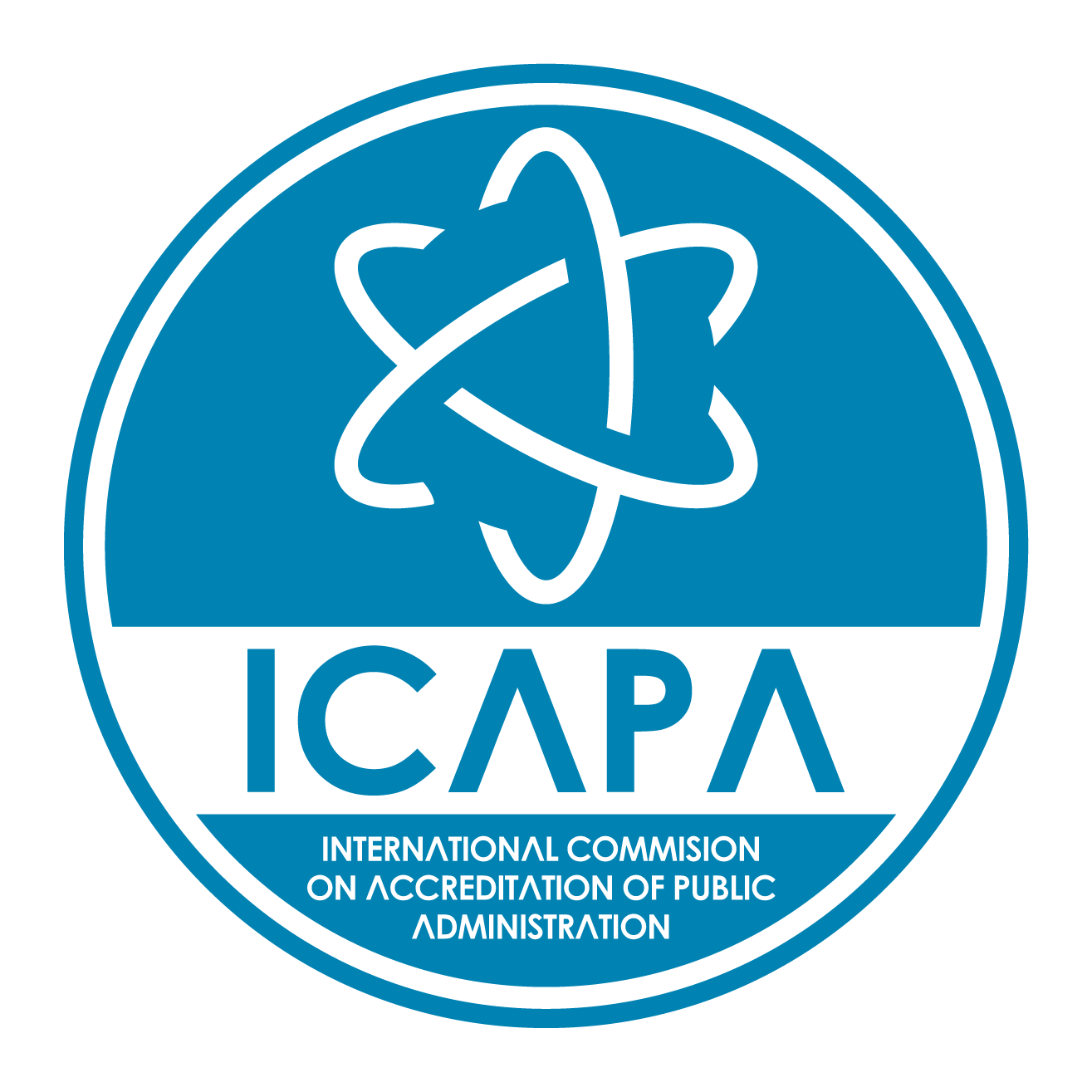The Master of Public Policy (MPP) is a full-time two-year degree offered by the College of Public Policy at HBKU. The program features a distinctive combination of interdisciplinarity, strong ethical foundations, entrepreneurship in public management, and innovation in policy-making and design.
The MPP provides training to graduate students from a range of disciplines in the skills needed to understand and enrich policy-making in Qatar and the region. The program will offer world-class academic and professional training in public policy analysis, design, implementation, evaluation, and management; as well as specializations in social policy, and in energy and the environment.
Accreditation
The Master of Public Policy (MPP) is the first MPP in Qatar and the Gulf region to be triple-accredited by three external accreditation bodies. This is a testament to our students, our faculty, and our globally-recognized program management, along with the quality of the HBKU learning environment.
- Accredited by the European Association for Public Administration Accreditation (EAPAA) for the 2024-2030 period. It is the first MPP program in the Gulf region and the second MPP program in the Middle East and North African (MENA) region to earn such an important recognition.
- Accredited by the International Commission on Accreditation of Public Administration (ICAPA) for the 2025-2031 period. It is the first MPP program in the Gulf region and the second MPP program in the MENA region to earn such a respected recognition.
Accredited by the U.S.-based Network of Schools of Public Policy, Affairs, and Administration (NASPAA) for the 2025-2032 period. It is the second program in the Gulf region and the third MPP program in the MENA region to earn this prestigious accreditation.
Mission
The mission of the Master of Public Policy is to educate, enlighten, and empower the next generation of ethically grounded public leaders in Qatar and beyond.
We strive to provide critical knowledge and skills to address complex sociopolitical, socioeconomic, and environmental challenges for the public good. Through a rigorous curriculum, students will be equipped to foster equitable and responsible decisions. We seek to provide an inclusive and diverse learning environment to promote a culture of excellence, integrity, respect, and fairness. We experiment with, analyze, design, and evaluate innovative, evidence-informed, and future-oriented policy options and solutions.
The program enhances meaningful contributions to the community through public service and social value. Our graduates aspire to effectively communicate, contribute, and facilitate positive global and local impacts.
Number of Students (as of Fall 2025)
Program Continuing New First Time Grand Total MPP 24 19 43 MSPPE 14 10 24 MGHP 0 16 16 Grand Total 38 45 83 MPP Graduation and Completion Rates
Enrollment Date Fall 2019 Fall 2020 Fall 2021 Fall 2022 Fall 2023 Fall 2024 Fall 2025 Graduation Date Spring 2021 Spring 2022 Spring 2023 Spring 2024 Spring 2025 Spring 2026 Spring 2027 Initial Enrollment 11 18 19 20 16 16 18 Transfer 0 0 1 0 0 0 0 Dismissal / Withdrew 1 1 2 1 0 0 0 Effective Enrollment after Transfer, Dismissal, Withdrawal 10 17 16 17 16 16 18 # Effective Enrolled who Graduated, On-Time, Two Years 10 (100%) 15 (88.2%) 16 (100%) 13 (76.4%) In Process In Process In Process % of Enrolled who Graduated in Three Years N/A 16 (94.1%) N/A In Process In Process In Process In Process % of Enrolled who Graduated in Four Years N/A 16 (94.1%) N/A In Process In Process In Process In Process # Not Graduate in Four Years N/A 1 (5.9%) N/A In Process In Process In Process In Process
The MPP program builds on the four pillars of public policy: policy analysis, economics, public management ethics, and research methodology. It is designed to integrate analysis, research, and the practical application of knowledge, from an interdisciplinary perspective. Other distinctive features include a strong focus on ethics in the program design and real-world experiences. The specializations will complement and deepen the core training, and encourage students to work with clients in addressing current policy problems. The program’s ambition is to create thinkers who can do, and doers who can think.
A 36-credit program taught in English and delivered face-to-face in a classroom setting over two years. It includes:
7 core courses (21 credits)
Code Course Name PPO-601 Research Methods for Public Policy PPO-602 Ethics, Law, and Public Policy PPO-611 Policy Analysis and Design PPO-621 Economics for Public Policy PPO-650 Public Management: Innovations and Challenges PPO-652 Comparative Public Policy PPO-653 Analytical Methods for Policy Evaluation 3 electives (9 credits) if pursuing the Capstone option, or 2 electives (6 credits) if pursuing the Thesis option, selected from the following courses:
Code Course Name PPO-651 Global Political Economy PPO-671 Postwar Reconstruction PPO-672 Digital Governance PPO-702 Advanced Seminar in Sustainability and Climate Policy PPO-703 Advanced Seminar in Social Policy SPO-650 Leadership in Public Policy SPO-657 Education Policy GHP-601 Foundations of Global Health Policy GHP-604 Data, AI, and Methods in Contemporary Health Policy - PPO 690: Capstone Project (6 credits) or PPO 695: Thesis (9 credits)
- Articulate and map major multidisciplinary debates, schools of thought, and theoretical approaches in the policy sciences.
- Critically analyze policy problems by using locally and globally relevant multidisciplinary perspectives with rigorous and appropriate methods.
- Collaborate effectively via culturally responsive and equity-oriented activities with relevant policymakers, leaders, and other stakeholders.
- Utilize effective verbal and written skills to encourage community service, public service, policy analysis, and evaluation.
- Apply ethical standards in policy research, research design, and adaptive policy practice.
- To create a comprehensive curriculum that provides students with a strong foundation in public policy, including an ethical understanding of the political, economic, and social dynamics that shape policy decisions.
- To Cultivate an environment of respect and inclusion where students can explore and debate a wide range of policy issues in a constructive and civil manner.
- To promote agile and responsive individuals and institutions that foster positive sustainable change.
- To encourage multi-disciplinary and evidence-informed scholarship that contributes to advancing public policy knowledge and practice.
- To empower leaders who are knowledgeable and ethical public policy professionals able to identify, analyze, and develop innovative solutions to complex policy problems.
- To provide a range of collaborative, participatory, and leadership opportunities that allow students to apply their knowledge and skills to real-world problems.
- Integrity – Adherence to strong ethical principles, honesty, transparency, accountability, and fairness.
- Inclusivity – Commitment to creating a diverse, equity-oriented, culturally responsive, and inclusive learning environment.
- Community – Fostering collaboration, critical thinking, and civil discourse.
- Service – Dedication to leadership, resilience, and innovation for the public good.
- Sustainability - Encouraging socially responsible environmental stewardship.
Applicants seeking admission to the Master of Public Policy should have a bachelor’s degree with a strong academic record (minimum 3.0 GPA out of 4.0) from a recognized university. Applicants from all fields are welcome to apply, including engineering, natural sciences and humanities, but preference will be given to those with an academic background in political science, public administration, economics, communications, or other social sciences.
Applicants are required to submit an IELTS score of 6.5 or a TOEFL score of 79 to demonstrate their proficiency in English.
Further details about the language proficiency requirement and the process to seek exemption (where this is an option) are available at CPP Admissions.
Tuition Fees
| Program | Master of Public Policy |
|---|---|
| Total Program Tuition Fees | QAR 90,000 |
| Tuition Fees per Credit Hour | QAR 2,500 |
| Total Program Credit Hours | 36 |
| Program Duration | 2 years |


